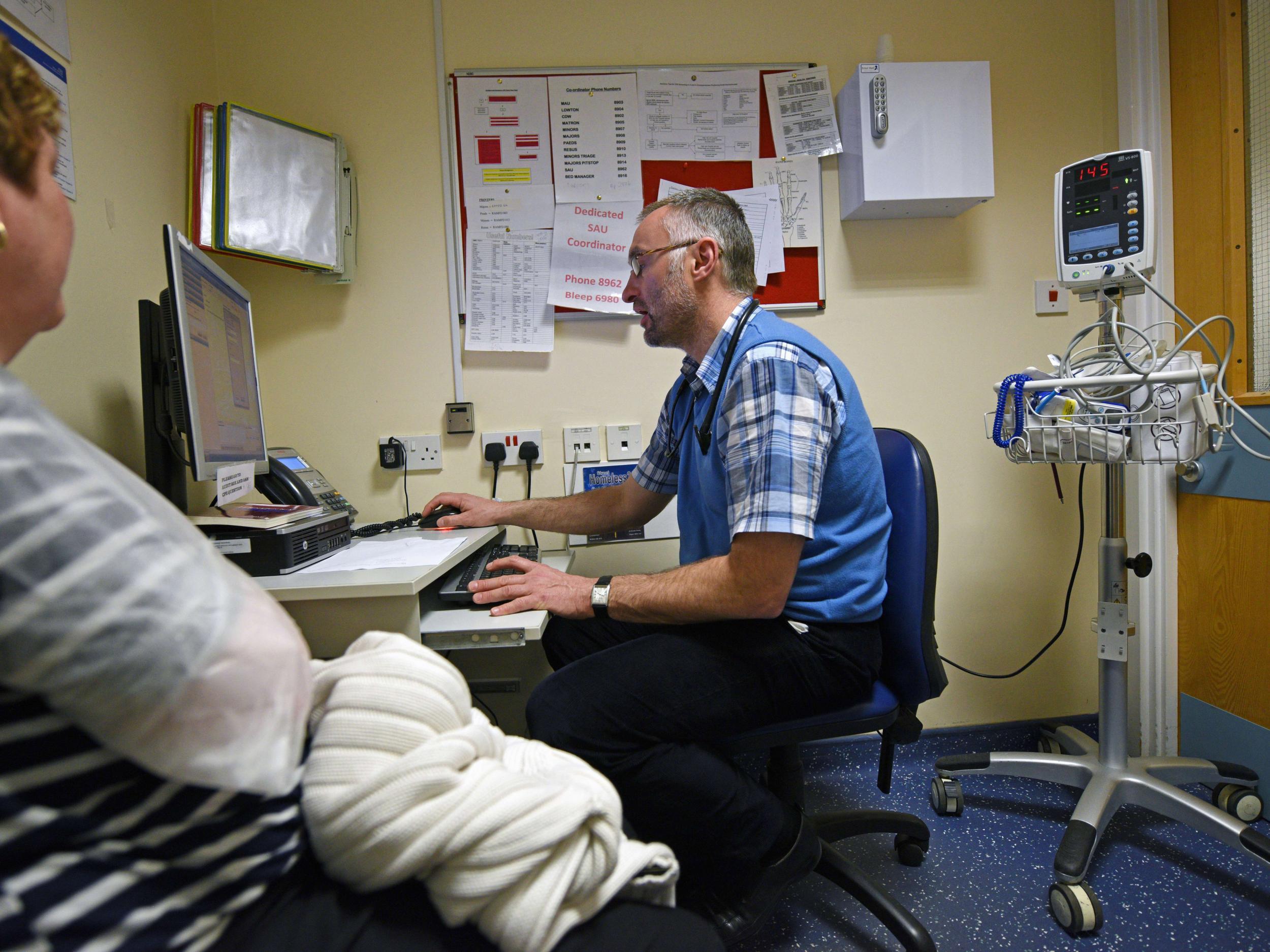Poorer areas have fewer GPs as national shortage hits the least healthy more
Patients in areas with the worst health face a tougher struggle to see their GP compared to more affluent healthy areas

People in the poorest areas of England are less likely to get appointments when they need them because of a shortage of GPs where they live – the result is a deepening gulf in health inequalities between rich and poor.
One doctor with 15 years experience in the NHS told The Independent the situation was akin to a “humanitarian disaster and national emergency” and said ministers must act to tackle the problem.
A new study by researchers at the University of Cambridge found there were significantly fewer full time GPs per 10,000 patients in practices based in areas of higher levels of deprivation.
They warned the gaps between rich and poor had also widened since 2015.
The study, published today in BJGP Open, compared GP workforce data from between September 2015 and December 2020 with practice population sizes and deprivation levels across England.
By December 2020, there were on average 1.4 fewer GPs per 10,000 patients in the most deprived areas compared to the least deprived areas. This was the same for patient-facing staff, excluding GPs and nurses, with 1.5 fewer staff per 10,000 patients in the most deprived areas compared to the least deprived areas.
The study found the gap in GPs in poorer areas was in part being filled by these practices using more nurses.
Separate research undertaken for the Labour Party by the House of Commons Library, and shared with The Independent, has also shown people in poorer areas are less likely to get an appointment.
In the five NHS areas scoring highest for deprivation – Blackpool, Manchester, Knowsley, Liverpool and Hull – between 10 and 17 per cent of patients either were not given an appointment, or were unable to take up the appointment they were offered, according to the national GP patient survey. For the five least deprived constituencies this fell to 8 – 10 per cent.
Patients in more deprived areas were also more likely to report it was “not easy at all” to use their GP’s website to access information, with 12.2 per cent of patients in Oldham, 11.6 per cent in Knowsley and 11.3 per cent in Barnsley struggling to use online services.
Last year, the Health Foundation think tank highlighted that GPs in poorer areas also get 7 per cent less funding per patient than those in more affluent areas.
The demand on GPs has been increasing and the number of GPs relative to the size of the population has been falling since 2009
There could be a shortage of 7,000 GPs by 2024 despite a pledge by the government to increase numbers by 6,000 over the same period. A previous target in 2015 to increase numbers by 5,000 was missed.
Dr John Ford from the University of Cambridge, said: “People who live in disadvantaged regions of England are not only more likely to have long-term health problems, but are likely to find it even more difficult to see a GP and experience worse care when they see a GP. This is just one aspect of how disadvantage accumulates for some people leading to poor health and early death.
“There may be some compensation due to increasing number of other health professionals, which may partially alleviate the undersupply of GPs in more socioeconomically disadvantaged areas. But this is not a like-for-like replacement and it is unlikely to be enough.”
Dr Dean Eggitt, a GP in Doncaster, told The Independent that doctors were protecting themselves from constant demand by choosing to work in areas where fewer hours were required of them.
He warned: “It is unsurprising that GPs are choosing to work in areas of the UK where there is less disease burden and the job is easier. The responsibility for this lies with those in the Department of Health and Social Care who failed to deliver on the promise of more GPs.
“It is their responsibility to regard this as a humanitarian disaster and national emergency.”
Professor Martin Marshall, chair of the Royal College of GPs, said a decade of underinvestment meant there simply were not enough GPs to care for people who needed them.
He said: “Urgent funding is needed for initiatives to attract GPs to under-doctored areas, as well as recruiting more GPs to the profession overall and preventing the ones we do have from burning out. The college has been calling on the government to urgently deliver on its manifesto pledge of 6,000 additional GPs by 2024.”
An NHS England spokesperson said: “Record numbers of people are now training to become GPs, with up to 4,000 people expected to start this year. The NHS has also introduced financial incentives for those who complete their training in more deprived parts of the country.”
Join our commenting forum
Join thought-provoking conversations, follow other Independent readers and see their replies
Comments
Bookmark popover
Removed from bookmarks